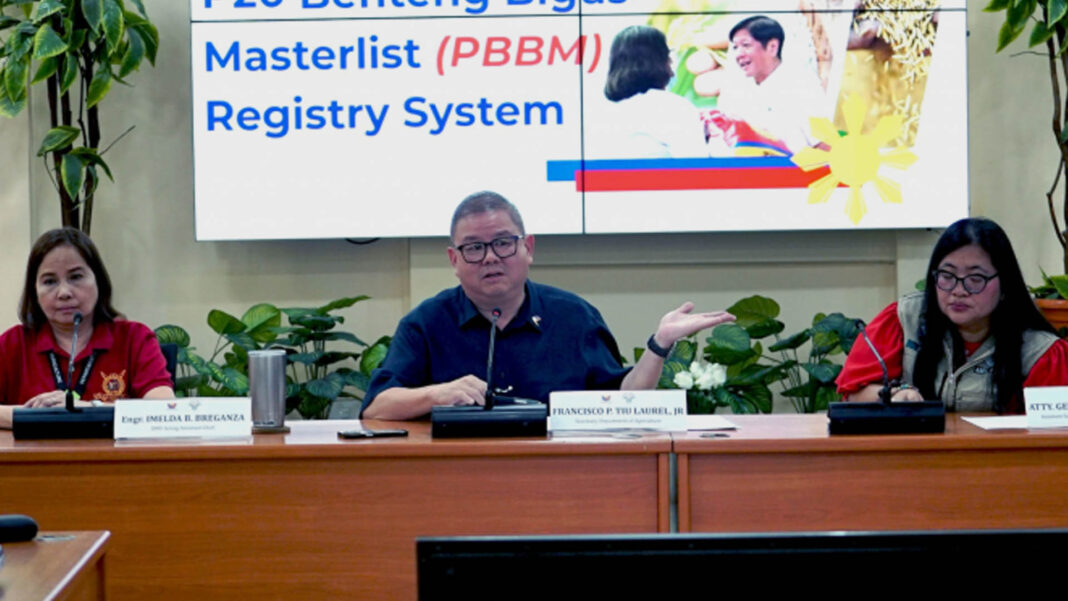The Department of Agriculture (DA) on Monday launched a modernized online registry system for the P20 rice program under the “Benteng Bigas Meron Na (BBM Na)” initiative.
The program aligns with President Ferdinand R. Marcos Jr.’s directives to ensure food security, accessibility, and affordability across the country.
The P20 rice program refers to the sale of aging and soon-to-age but good-quality rice stocks from the National Food Authority (NFA), which are procured from Filipino palay (unhusked rice) farmers.
In a press conference, DA Secretary Francisco Tiu Laurel Jr. said the digital platform aims to enhance the program’s system and sales by providing a master list of beneficiaries.
“Napaka-importante nitong masterlist sa (This masterlist is very important for the) smooth implementation nitong Benteng Bigas Meron Na program,” he said.
The agriculture chief highlighted the efforts of the DA-Information and Communications Technology Service, which conducted a successful test in October.
The registry system is ready for deployment as part of the country’s celebration of National Rice Awareness Month.
A massive registration drive will include delivery riders, drivers, bus conductors, security personnel, and members of the vulnerable sectors, including senior citizens, persons with disabilities, solo parents, and beneficiaries of the Pantawid Pamilyang Pilipino Program (4Ps).
Access has also been extended to indigenous peoples, low-income earners, farmers and fisherfolk, public transport workers, and beneficiaries of the Department of Social Welfare and Development’s (DSWD) Walang Gutom program.
Eligible beneficiaries have until the end of February to register at designated P20 outlets and be included in the online ‘P20 Benefinder’.
Once registered, they will receive a QR code for purchase validation and a monthly purchase limit indicator.
Currently, there are four registration sites in Metro Manila and NFA warehouses nationwide.
The modernized registry is expected to support the expansion of BBM Na to 15 million households, or roughly 60 million individuals, streamlining the distribution and accessibility of affordable rice. (PNA)


